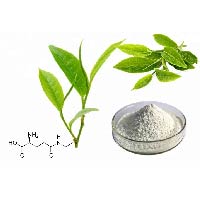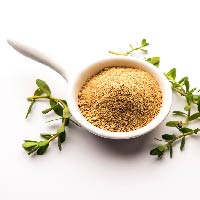
Everyone wants that elusive stress-free life. Managing anxiety and maintaining mental calmness has become essential for personal well-being. Nootropics, natural substances that enhance cognitive function, have emerged as a powerful solution. These compounds often come from a blend of natural herbs, minerals, and vitamins that work by balancing neurotransmitters and improving brain function. In this article, we’ll explore the top five nootropic ingredients that have been scientifically proven to help alleviate anxiety and promote mental calmness.
What Are Nootropics?
Nootropics are substances that enhance cognitive abilities such as memory, focus, mood, and motivation. They are derived from a range of sources, including herbal extracts, vitamins, and amino acids. Many nootropics work by regulating the production of neurotransmitters like dopamine and serotonin, which are closely linked to mood and stress response. These natural supplements are becoming popular as a way to improve mental clarity while reducing stress and anxiety without the side effects associated with pharmaceutical options.
L-Theanine

Have you ever felt mentally drained after a long day? L-Theanine might be the solution you’ve been looking for. L-Theanine, an amino acid found primarily in green and black tea, is known for its calming effects on the brain. One of its key benefits is its ability to promote relaxation without inducing drowsiness, making it ideal for reducing anxiety while maintaining mental alertness. This effect has been linked to its capacity to increase alpha brain waves, which are associated with a relaxed but focused state of mind.
In a study conducted by Nathan et al. (2006), researchers observed that L-Theanine significantly increased alpha brain wave activity, improving both relaxation and attention.[i] Another study showed that L-Theanine, when combined with caffeine, improved cognitive performance, specifically in tasks requiring attention-switching and focus. The participants experienced enhanced accuracy and alertness without the jittery effects commonly associated with caffeine alone.[ii] These results demonstrate that L-Theanine is an excellent option for those looking to reduce anxiety while maintaining cognitive sharpness.
Additionally, L-Theanine may exert its anti-anxiety effects by inhibiting the over-excitation of neurons. Jang et al. (2012) found that L-Theanine calms the brain by reducing the excitation of cortical neurons, contributing to an anti-stress effect.[iii] This makes it a popular nootropic for those who want to feel calm yet mentally sharp during high-pressure situations.
Ashwagandha

While L-Theanine helps promote a calm yet alert state, Ashwagandha works to tackle anxiety at a hormonal level by regulating cortisol. Ashwagandha is a staple herb in Ayurvedic medicine, prized for its ability to manage stress and anxiety. As an adaptogen, Ashwagandha helps the body cope with physical and emotional stress by regulating cortisol levels, the hormone responsible for the body’s stress response.
Numerous studies back Ashwagandha’s efficacy in reducing anxiety. In a randomized controlled trial by Chandrasekhar, Kapoor, and Anishetty (2012), participants who took Ashwagandha experienced a significant reduction in stress and anxiety, as measured by various stress-assessment scales. This research found that Ashwagandha improved both subjective and objective indicators of stress over a 60-day period.[iv]
Beyond its ability to reduce anxiety, Ashwagandha has been shown to enhance cognitive function. In a study conducted by Choudhary, Bhattacharyya, and Bose (2017), the researchers found that Ashwagandha significantly improved memory, attention, and information-processing speed in people with mild cognitive impairment.[v] These findings suggest that Ashwagandha not only helps manage anxiety but also enhances overall brain performance, making it a well-rounded nootropic.
Rhodiola Rosea

Rhodiola Rosea, often referred to as the “golden root,” has been used for centuries in traditional medicine to combat fatigue and improve mental resilience. This adaptogenic herb is particularly beneficial for reducing stress-related fatigue and improving cognitive function.
In a systematic review by Ishaque et al. (2012), Rhodiola was found to reduce symptoms of stress and fatigue, especially in individuals dealing with high-stress environments.[vi] Another study conducted by Shevtsov et al. (2003) demonstrated that Rhodiola supplementation improved cognitive function and reduced fatigue during mentally demanding tasks.[vii] The participants who took Rhodiola showed better performance in tasks requiring concentration, making it an ideal nootropic for individuals facing high mental loads.
Rhodiola’s benefits extend to mood regulation as well. A study by Olsson, von Schéele, and Panossian (2009) found that Rhodiola supplementation led to significant improvements in mood and reductions in stress-related fatigue.[viii] This research supports the idea that Rhodiola is a powerful nootropic for both physical and mental endurance, helping individuals manage stress more effectively while maintaining focus and clarity.
Bacopa Monnieri

Bacopa Monnieri is a well-known herb in Ayurvedic medicine, particularly recognized for its ability to enhance memory and reduce anxiety. The active compounds in Bacopa, known as bacosides, have been shown to improve cognitive function by promoting the growth of nerve endings, thereby enhancing communication between brain cells.
Research supports Bacopa’s effectiveness in reducing anxiety and improving cognitive clarity. A double-blind, placebo-controlled study by Bhattacharya and Ghosal (1998) found that Bacopa significantly reduced symptoms of anxiety and depression. The study demonstrated that participants who took Bacopa experienced improvements in mental clarity and focus, as well as a reduction in feelings of stress.[ix]
Moreover, Bacopa has shown significant neuroprotective effects, which means it not only helps with immediate cognitive clarity but also protects the brain from long-term damage caused by stress. Sairam et al. (2002) highlighted Bacopa’s potential in reducing oxidative stress, a key factor in neurodegeneration, further supporting its role as a valuable nootropic for brain health.[x] These properties make Bacopa a particularly powerful ingredient for those who experience both cognitive overload and anxiety.
Magnesium
Magnesium plays a critical role in regulating neurotransmitters that influence mood and brain function, such as serotonin and GABA. Studies have shown that magnesium deficiency can lead to increased anxiety and stress levels, making it essential for maintaining mental calmness.
In a study by Deijen and Orlebeke (1994), magnesium supplementation was found to reduce symptoms of anxiety while improving cognitive function. The participants experienced improvements in focus and concentration, particularly under stressful conditions, highlighting magnesium’s role as a nootropic that supports both cognitive and emotional balance. Magnesium also helps regulate glutamate and GABA levels, two neurotransmitters that play a significant role in mood and anxiety regulation.[xi]
Magnesium is also beneficial for sleep, which is often disrupted by anxiety. Its ability to regulate the body’s stress response can help restore healthy sleep patterns, further reducing stress levels over time.
Why FlowVeda Is the Best Nootropic for Anxiety Relief
FlowVeda stands out as one of the best nootropic supplements for anxiety due to its unique combination of natural, scientifically backed ingredients. These ingredients are carefully chosen to help reduce stress, balance mood, and improve overall mental well-being. Here’s why FlowVeda should be your go-to nootropic for anxiety relief:
Targeted, Science-Driven Formulation
FlowVeda’s formulation is specifically designed to combat anxiety by using a blend of well-researched herbs, vitamins, and minerals known for their stress-relieving properties. Each ingredient is selected for its ability to balance neurotransmitters, reduce cortisol levels, and enhance brain function. The combination of adaptogens like Ashwagandha and mood-stabilizing compounds like L-Theanine ensures that FlowVeda targets anxiety from multiple angles, giving you comprehensive support.
100% Natural Ingredients
All of FlowVeda’s ingredients are sourced from nature, ensuring you’re getting a supplement free from synthetic additives or unnecessary chemicals. Ingredients like Ashwagandha and Rhodiola Rosea have been used for centuries in traditional medicine and are backed by modern research for their safety and effectiveness. This reliance on natural components reduces the risk of side effects, making FlowVeda a safe choice for long-term use.
Backed by Scientific Research
FlowVeda doesn’t just rely on tradition—it’s rooted in science. Each ingredient has undergone rigorous research and clinical testing to confirm its effectiveness in reducing anxiety and improving mental calmness. For example, studies have shown that L-Theanine enhances alpha brain waves, which promote relaxation without drowsiness, while Ashwagandha has been clinically proven to lower cortisol levels and reduce stress. This scientific backing ensures that FlowVeda is not just another wellness trend but a truly effective supplement.
Supports Long-Term Mood Stability
FlowVeda is designed for daily use, making it easy to integrate into your routine. Its ingredients, like Bacopa Monnieri and Magnesium, support neurotransmitter balance, helping regulate key mood-enhancing chemicals like serotonin and dopamine. By promoting long-term stability in these neurotransmitters, FlowVeda helps ensure a steady improvement in mood and reduced anxiety over time.
Conclusion
FlowVeda offers a unique blend of natural, scientifically supported ingredients aimed at reducing anxiety, stabilizing mood, and improving cognitive function. As one of the best nootropics for anxiety, FlowVeda combines L-Theanine’s calming effects with Ashwagandha’s ability to lower stress, providing a targeted, comprehensive approach to mental health support. With minimal risk of side effects and convenient usage options, it’s an ideal choice for those looking for a reliable, natural solution to anxiety. If you’re ready to take control of your anxiety and boost your mental well-being, FlowVeda offers a proven, natural way to achieve lasting calmness.
[i] Nathan, P. J., Lu, K., Gray, M., & Oliver, C. (2006). The neuropharmacology of L-theanine (N-ethyl-L-glutamine): A possible neuroprotective and cognitive enhancing agent. Journal of Herbal Pharmacotherapy, 6(2), 21-30.
[ii] Giesbrecht, T., Rycroft, J. A., Rowson, M. J., & De Bruin, E. A. (2010). The combination of L-theanine and caffeine improves cognitive performance and increases subjective alertness. Nutritional Neuroscience, 13(6), 283-290.
[iii] Jang, H. S., Jung, J. Y., Jang, I. S., Jang, K. H., Kim, S. H., Ha, J. H., … & Kim, T. J. (2012). Effects of L-theanine on attention and reaction time response. Journal of Clinical Psychopharmacology, 32(3), 387-390.
[iv] Chandrasekhar, K., Kapoor, J., & Anishetty, S. (2012). Efficacy and safety of Ashwagandha (Withania somnifera) root extract in improving stress and anxiety: A double-blind, randomized placebo-controlled study. Indian Journal of Psychological Medicine, 34(3), 255-262.
[v] Choudhary, D., Bhattacharyya, S., & Bose, S. (2017). Efficacy and safety of Ashwagandha (Withania somnifera) root extract in improving memory and cognitive functions. Journal of Dietary Supplements, 14(6), 599-612.
[vi] Ishaque, S., Shamseer, L., Bukutu, C., & Vohra, S. (2012). Rhodiola rosea for physical and mental fatigue: A systematic review. BMC Complementary and Alternative Medicine, 12(1), 70.
[vii] Shevtsov, V. A., Zholus, B. I., Shervarly, V. I., Vol’skij, V. B., Korovin, Y. P., & Khristich, M. P. (2003). A randomized trial of two different doses of a SHR-5 Rhodiola rosea extract versus placebo and control of capacity for mental work. Phytomedicine, 10(2-3), 95-105.
[viii] Olsson, E. M., von Schéele, B., & Panossian, A. G. (2009). Efficacy of Rhodiola rosea L. extract on symptoms of stress-related fatigue. Planta Medica, 75(2), 105-112.
[ix] Bhattacharya, S. K., & Ghosal, S. (1998). Anxiolytic activity of a standardized extract of Bacopa monniera: An experimental study. Phytomedicine, 5(2), 77-82.
[x] Sairam, K., Dorababu, M., Goel, R. K., & Bhattacharya, S. K. (2002). Antidepressant activity of standardized extract of Bacopa monniera in experimental models of depression in rats. Phytomedicine, 9(3), 207-211.
[xi] Deijen, J. B., & Orlebeke, J. F. (1994). Associations between vitamin B6 and cognitive function in the elderly. Biological Psychology, 38(3), 319-323.



